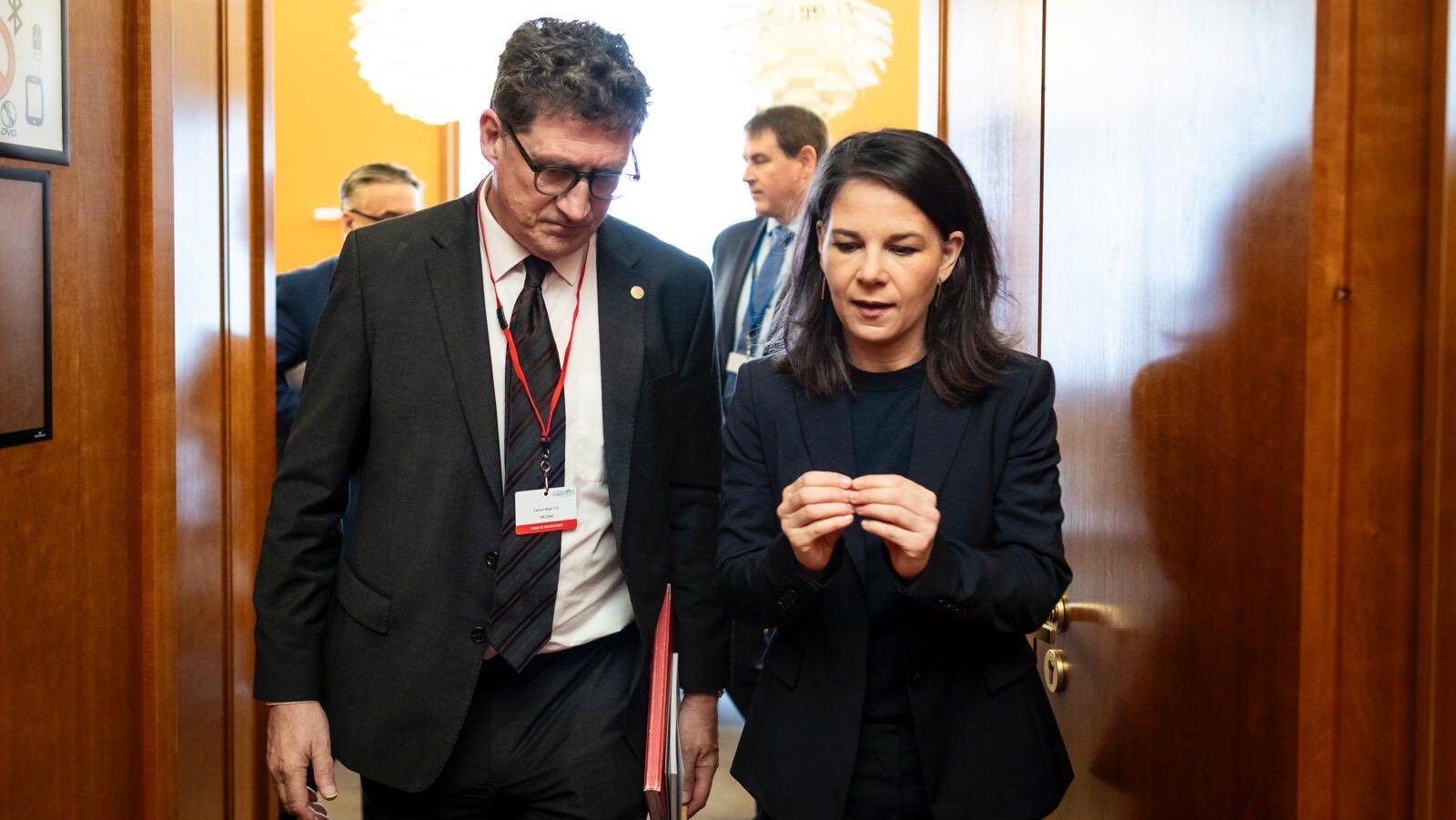
Irish Minister for the Environment, Climate and Communications Eamon Ryan (Green Party) with German Foreign Affairs Minister Annalena Baerbock (Greens).
Photo: @EamonRyan on X, 26 April, 2024
An initiative led by Green Party ministers in Germany and Ireland aims to build a pan-European coalition to get a landmark piece of EU green legislation over the line ahead of a predicted populist wave in next month’s European elections.
The Nature Restoration Law—a flagship piece of EU green legislation that mandates 20% of EU land and waters must be put out of commercial or agricultural use by 2030— barely cleared the European Parliament in February. Despite the backing of a majority of MEPs—including from the powerful centrist faction of Ursula von der Leyen’s European People’s Party (EPP)—the Nature Restoration Law has since struggled to win the approval of member states, with Poland and Finland voicing strong objections to its onerous environmental regime.
Member states and farming lobbies argue that the Law would over-regulate EU food production at a time of rising food prices in Europe. Grassroots farmers’ protests against the green agenda have been sweeping various EU capitals for months. According to the farmers, institutional capture by the bloc’s green lobby threatens to put their way of life out of existence.
To pass at an EU level, the Nature Restoration Law requires a ‘qualified majority’ comprising 15 out of 27 member states. If the Law is given that approval, each EU member would be required, in turn, to present its own rewilding plans.
The governments of Cyprus, the Czech Republic, Denmark, Estonia, Lithuania, Luxembourg, and Slovenia have all lent support to the joint Irish-German initiative, in part motivated by the influence of green parties within their national governments.
Hungarian opposition to the proposed law meant a vote on the legislation was postponed in April, with Italy and Sweden leading opposition to the law at an EU level.
Progressives are particularly worried about the effect that a wave of newly elected populist MEPs will have on the EU’s legislative calendar from June onwards. Likewise, they expect to be challenged by Hungary’s appointment to the EU Council Presidency, prompting key government ministers to scramble to resuscitate the Nature Restoration Law.
For instance, Ireland’s green minister, Eamon Ryan, is reportedly taking the lead on pushing through the law, with a meeting of environmental ministers scheduled for June 17th earmarked as a key date in the calendar to sneak it over the line.
The Nature Restoration Law is regarded as the last major legislative step in the EU’s green agenda, codified after the last EU elections in 201. To date, Brussels has demanded member states ban the sale of new petrol cars after 2035.
Despite registering electoral triumphs in 2019 at a national and EU level, green parties are expected to suffer heavy losses in June, with green parties in Ireland and Germany expected to be out of power in the coming years. Going into these elections, progressives fear that defence and foreign policy issues will outrank environmental concerns after 2024.
